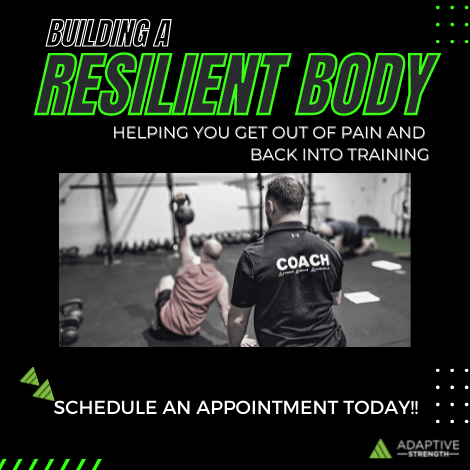Myelin Oligodendrocyte Glycoprotein Antibody-Associated Disease (MOGAD) affects the central nervous system, causing neurological symptoms like weakness, loss of coordination, and balance difficulties. For patients affected by MOGAD, Exercise Physiology offers a structured approach to help restore strength, coordination, and balance. At Adaptive Strength in Booragoon, our Accredited Exercise Physiologists design individualized programs to address these challenges, supporting neurological recovery and improving functional abilities.
How MOGAD Affects Strength and Coordination
MOGAD is an autoimmune disorder where the immune system mistakenly attacks the myelin sheath—the protective covering around nerve fibers in the central nervous system. This damage can disrupt communication between the brain and muscles, leading to symptoms such as:
- Muscle Weakness: Loss of strength in specific muscle groups, affecting mobility and independence.
- Poor Coordination: Difficulty with fine and gross motor movements, leading to challenges in performing daily tasks.
- Balance Problems: Impaired balance due to reduced proprioception, increasing the risk of falls.
These symptoms can vary in severity, but they often affect a person’s ability to engage in regular activities and maintain independence. Exercise Physiology plays a vital role in addressing these issues and promoting recovery.
How Exercise Physiology Supports Neurological Recovery
Exercise Physiology focuses on using structured physical activity to enhance motor function, strength, and coordination. For individuals with MOGAD, an Accredited Exercise Physiologist can tailor exercise programs that are both safe and effective for managing symptoms and improving overall function.
1. Restoring Strength
Muscle weakness is a common outcome of MOGAD-related nerve damage, which can make simple tasks like walking or lifting objects difficult. Strength training helps rebuild muscle function and endurance.
- Resistance Training: Exercises like squats, leg presses, and resistance band work target the muscles most affected by weakness. Gradually increasing resistance helps patients rebuild strength without overexertion.
- Functional Strength Training: Exercises that mimic everyday movements, such as sit-to-stand transitions or step-ups, improve strength for daily activities.
By focusing on specific muscle groups, strength training can help MOGAD patients regain mobility and independence.
2. Improving Coordination
Coordination difficulties often arise due to disrupted nerve signals, affecting fine motor control and the ability to perform smooth, controlled movements. Exercise Physiology incorporates coordination training to help re-establish motor skills.
- Balance Drills: Exercises like standing on one leg, walking on uneven surfaces, or using a balance board improve proprioception and control.
- Fine Motor Skills: Tasks like grasping objects, hand-eye coordination drills, and controlled movement exercises help improve dexterity and coordination.
By practicing these movements in a safe and controlled environment, MOGAD patients can gradually regain the coordination needed for functional tasks.
3. Enhancing Balance
Balance impairments can lead to falls and further injury. Exercise Physiology addresses balance issues by strengthening core muscles and improving the body’s ability to maintain stability.
- Core Strengthening: A strong core provides better stability and control. Core exercises like planks, bridges, and stability ball work can significantly improve balance.
- Dynamic Balance Exercises: Activities that challenge balance while in motion, such as walking heel-to-toe or stepping over obstacles, train the body to adjust and maintain stability in real-world situations.
Enhanced balance reduces the risk of falls, improving confidence in movement and daily activities.
The Benefits of Strength and Coordination Training
For individuals with MOGAD, the benefits of strength and coordination training go beyond physical improvement. Engaging in regular exercise has been shown to:
- Promote Neuroplasticity: Exercise stimulates the brain’s ability to form new neural connections, which can help restore motor function lost due to nerve damage.
- Increase Independence: As strength, balance, and coordination improve, patients gain more independence in performing daily tasks without relying on external support.
- Improve Quality of Life: Regaining physical abilities leads to increased confidence, better mood, and an enhanced sense of control over one’s life.
Personalized Care at Adaptive Strength
At Adaptive Strength in Booragoon, our Accredited Exercise Physiologists take a personalized approach to MOGAD recovery. We understand that each individual’s experience with MOGAD is different, so we design exercise programs tailored to the specific needs and goals of each patient. Our focus is on providing safe, supportive, and effective training that helps patients regain their physical abilities and confidence.
Regaining Strength and Coordination with Exercise Physiology
Exercise Physiology offers a powerful tool for individuals with Myelin Oligodendrocyte Glycoprotein Antibody-Associated Disease (MOGAD) to regain strength, improve coordination, and enhance balance. At Adaptive Strength, we’re committed to helping you on your recovery journey by providing personalized, effective exercise programs that support neurological rehabilitation.
Contact Adaptive Strength in Booragoon today to learn more about how our Accredited Exercise Physiologists can help you manage MOGAD symptoms and regain your physical strength and coordination!




